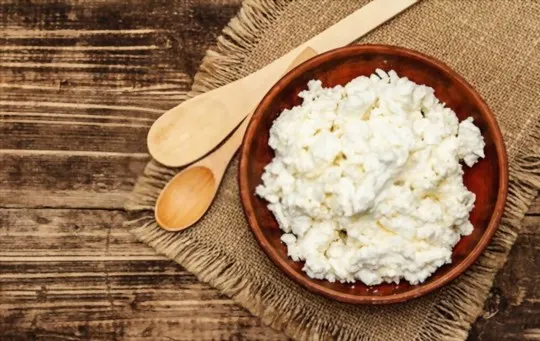Are you wondering if heavy cream can thicken your soup?
You’ll be pleased to know that there are many alternatives to heavy cream that can help you achieve the same desired consistency.
In this article, we’ll explore the best five substitutes for heavy cream in your soups.
Does Heavy Cream Thicken Soup?

Heavy cream can be used in many recipes to thicken and add creamy texture to soups, stews, and sauces.
As a high-fat dairy product, it contains more fat than milk or other kinds of cream, making it particularly flavorful.
However, when using heavy cream in soups, it must be used cautiously as too much can create an unpleasant texture.
When using heavy cream to thicken soup, a general rule is to start with no more than one cup per 32 ounces of soup.
Cream should be added towards the end of the cooking time so that the fat particles are not broken down by too much heat and separation will occur less likely.
Paired with some other ingredients like flour or butter, you can use heavy cream as part of a roux — a combination of flour and butter — to further help bind the liquids together into a thick soup or sauce.
You should always warm up cold heavy cream before adding it so that it blends easily with your other ingredients.
5 Best Heavy Cream Substitutes in Soup
When making soup, heavy cream can be an effective ingredient to add a rich and creamy texture.
However, it is not always desirable or possible to use cream in a recipe.
Fortunately, there are some suitable alternatives that can be used in its place.
Here are the five best substitutes for heavy cream when making soup.
1 – Buttermilk

If you’re adding buttermilk to soup, the fat content should be just enough to thicken the soup without giving it an overtly creamy flavor.
This is also a good choice for vegans or those looking for a lighter option for their soups.
To substitute buttermilk for cream, add two tablespoons of buttermilk per cup of cream called for in the recipe.
For lighter soups, reduce the amount added.
Don’t worry if you don’t want to open a full carton of buttermilk, since you can easily freeze what’s left over and use it later in baked goods.
2 – Coconut Cream

Coconut cream is a great vegan alternative to heavy cream, and it has the ability to thicken your favorite soups with ease.
It’s important to note that different brands of coconut cream will vary greatly in terms of thickness and potency—extra thick coconut cream should be used for optimal results.
Coconut cream is also known for its mild flavor, making it a great choice for dairy-free soups.
It can be easily combined with other flavors like curry, ginger, or garlic without overpowering the dish.
To add some extra thickness to your soup or stew, simply heat some coconut cream on the stove until it is reduced by half and then pour into your soup.
Make sure to adjust the seasoning as needed before serving.
3 – Half-and-half and Butter

Half-and-half and butter is a combination that imparts a creamy texture to soup while also providing some richness.
To prepare, begin by melting 2 tablespoons (28 grams) of unsalted butter in the soup pot.
Once melted, add two cups (473 milliliters) of half-and-half or heavy cream and stir to combine.
Simmer your soup for 20–30 minutes before serving.
While this substitution provides some creaminess, it does not impart as much indulgent flavor as using all cream.
As an alternative to using only half-and-half, you can opt for combining 1/4 cup (57 grams) of butter with 1 cup (236 milliliters) of heavy cream or half-and-half.
Depending on your preference and desired end result, you can adjust the ratio as necessary for a more full flavor and thicker texture.
4 – Greek Yogurt and Milk

Greek yogurt has a creamy texture, similar to that of heavy cream, and is slightly tangy due to the culture fermentation process.
It can easily be used as the primary cream substitute in your soup, but if you don’t have enough on hand, you can mix it in with some skimmed milk.
This combination won’t only add a creamy texture to your soup, but it will also give a sour note to the dish.
You may want to add a pinch of sugar or other sweetening agents if needed.
To use this mixture, simply stir it into your pot when you know that the soup is close to being finished and let it heat until all ingredients are combined.
5 – Cottage Cheese

Cottage cheese is rich in both creaminess and protein, making it an ideal thickening agent for a healthy soup.
Simply blend ½ cup cottage cheese together with 1 cup broth or water until it forms a smooth paste and stir this into the soup.
You might need to simmer the soup for a few minutes before serving, but remember that stirring on low heat will ensure the cheese doesn’t break down or become stringy.
Furthermore, you should avoid boiling your soup vigorously since this will also cause curdling and lumpiness.
Conclusion
In conclusion, heavy cream can indeed thicken soups, but it is not always the best choice.
By following some basic tips and understanding the impact of various ingredients, you can better judge which ingredients would best bring the desired outcomes in taste and texture when attempting to thicken a soup.
Alternatives to heavy cream, such as starch-based thickeners, nut-based ingredients, or Greek yogurt all have their advantages and may be better choices depending on quality and desired outcome.
Experimenting with different ingredients can enrich a cook’s experience with thickening soups, yielding delicious results time after time.

5 Best Heavy Cream Substitutes in Soup
Ingredients
- 1 – Buttermilk
- 2 – Coconut Cream
- 3 – Half-and-half and Butter
- 4 – Greek Yogurt and Milk
- 5 – Cottage Cheese
Instructions
- Choose your preferred substitute from the list of options.
- Organize all of your ingredients.
- Use the proper substitute to cook your recipes.

Carrie is a food writer and editor with more than 15 years of experience. She has worked for some of the biggest names in the food industry, including Bon Appétit, Food & Wine, and Martha Stewart Living.
As the Editor in Chief of IntroChicago.com, Carrie oversees all of the content on the site. She also manages the team of contributing writers and editors, who help to create delicious recipes, helpful tips, and informative articles that you’ll find on the site.
A native of the Chicago area, Carrie is passionate about all things food. She loves trying new restaurants and experimenting with new recipes in her kitchen. She’s also a graduate of the Culinary Institute of America, so she knows a thing or two about food!
